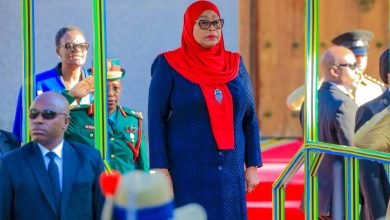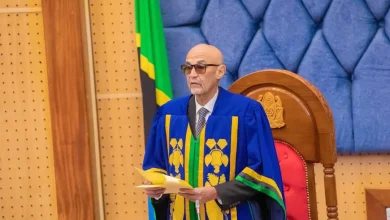WHAT’S INSIDE: KEY HIGHLIGHTS FROM NLD’S MANIFESTO

IN its 2025-2030 Election Manifesto, the National League for Democracy (NLD) party is poised to building a modern, inclusive and competitive economy by adding value to locally produced resources.
The party’s agenda is detailed across several key sectors, with a clear focus on enhancing economic stability, creating employment and improving the quality of life for all citizens.
Economic and Investment Sector
The NLD is committed to establishing a solid foundation for developing a modern and industrial economy by doing the following.
– Reforming laws and regulations by streamlining the legal framework for investment, to reduce bureaucracy and increase transparency.
– Providing investor incentives by offering tax breaks and expedited services to both domestic and foreign investors in high-employment sectors.
– Promoting industrialisation and local products, establishing Special Economic Zones (SEZs) and value-addition industries.
– Fostering PublicPrivate Partnerships (PPPs), encouraging collaborative development projects between the private sector and the government.
– Improving economic infrastructure through expanding the Standard Gauge Railway network (SGR) and district roads to open up new markets.
-Investing in reliable energy by ensuring a consistent supply of power for industries and domestic use.
– Empowering the private sector and reforming the tax and fee system to create a more enabling environment for entrepreneurs and smallscale investors.
– Creating a single investment window, by establishing a one-stopcentre for quick, digital company registration, land acquisition and financial services.
– Ensuring transparent public spending through implementing accountability systems, competitive public procurement and timely evaluations of development projects.
In Agriculture, Livestock, Fisheries and Food Security
The NLD will strengthen these sectors by:
– Increasing the agriculture budget: Raising the budget allocation to 14 per cent of the national budget, prioritising resources in line with the Malabo Declaration and Sustainable Development Goals (SDGs).
– Offering interestfree loans and subsidies by providing small-scale farmers and pastoralists with access to quality seeds, fertilisers, pesticides and tools through development banks like Tanzania Agricultural Development Bank (TADB).
– Improving agricultural infrastructure by building modern warehouses, produce markets and rural roads to reduce post-harvest losses and increase production value.
– Enhancing irrigation, through constructing dams and small-tomedium scale irrigation systems to boost productivity and reduce reliance on rainfall.
– Establishing modern auctions and grazing areas. Creating designated grazing zones, veterinary centres and modern electronic livestock auctions.
– Promoting modern fishing. Investing in large, deep-sea fishing vessels and processing plants along coastal and lake regions. The party will also provide loans for small-scale fishers to acquire faster boats, while promoting sustainable practices and combating illegal fishing.
– Ensuring food security. Creating a national food reserve and a rapid response system for disasters or climate-related food crises.
In Industry, Mining and Trade Sector
The NLD’s plan for these sectors includes:
– Developing modern industries: Establishing value-addition industries for agricultural produce, livestock and minerals in every region. Constructing SEZs with reliable connections to energy, water, roads and rail.
– Empowering entrepreneurs: Providing access to affordable loans and business training through institutions like SIDO and vocational schools.
– Strengthening the mining sector: Reviewing all mining contracts to ensure community involvement and national transparency.
– Establishing the Agency for Citizens’ Mineral Resources (ACMR) to formalise small-scale mining and ensure direct benefits to citizens. A percentage of all mining revenue will be returned to local communities. The party will also prohibit the export of raw mineral resources to protect the interests of local businesses and miners.
– Fostering Small and Medium-sized Enterprises (SMEs): Reducing complex business registration requirements through quick, digital processes. Providing tax incentives and lowinterest loans for businesses run by women and youths. Reviewing fees and duties that hinder the establishment and operation of small businesses.
– Engaging the Private Sector: Using a Public-Private Partnership (PPP) model for strategic projects like fertiliser plants, cement factories, food processing and machinery. Offering timebound tax incentives to both local and foreign investors to encourage private investment.
Youth Employment and Citizen Empowerment
The NLD will address employment and empowerment through:
– Creating practical training programmes: Partnering with private institutions to offer six to 12-month internships and apprenticeships for university and college graduates.
– Establishing a National Youth Empowerment Fund (NYEF): Providing interest-free or low-interest loans for youths starting their own businesses. Creating a “Young Entrepreneur Centre” in every council.
– Promoting technical and entrepreneurship education: Improving and expanding Vocational Educational and Training Authority (VETA) colleges to reach every ward. Partnering with SIDO and the private sector to offer more practical training.
– Streamlining access to loans and licences: Implementing digital systems for business registration and permits to speed up the process. Offering a three-year tax exemption for new youth-led businesses.
– Creating new jobs in transformative sectors: Building light industries to employ a large number of young people. Creating direct employment opportunities in agriculture, livestock, fishing, tourism, ICT, construction and renewable energy.
-Developing a social security system for the informal sector: Creating a benefits system for selfemployed and informal workers, including health insurance and a pension scheme.
In Education Sector
The NLD will pursue reforms for:
– Quality and free education: Providing free education up to the sixth form and in public vocational colleges. Implementing a fair and managed low-interest student loan system for higher education.
– Reforming the curriculum: Modernising the primary, secondary and college curriculum to focus on 21st -century skills like technology, innovation, finance, foreign languages and environmental issues. Introducing a Digital School Initiative.
– Expanding technical and vocational education: Increasing the number of VETA colleges to every ward and fostering partnerships with SIDO and the private sector to offer effective training. -Improving school infrastructure: Constructing new classrooms, dormitories, libraries and laboratories. Distributing modern ICT equipment (computers, internet and projectors) to all schools.
– Teacher capacity building: Providing ongoing professional development for teachers on modern teaching methods and ICT. Ensuring good working conditions and benefits for teachers, including housing, allowances and teaching materials.
– Inclusive education: Improving educational services for children with disabilities, those in rural areas, girls who become pregnant and street children.
In Health Sector
The NLD will focus on:
– Introducing a National Health Insurance Scheme (NHIS): Making health insurance mandatory and easily accessible for all citizens, with the government covering the cost for those unable to afford it.
– Reducing medicine and medical equipment shortages: Increasing the health sector budget allocation for medicines and equipment to at least 20 per cent. Implementing a digital national drug distribution system to ensure timely delivery to health centres.
– Increasing health professionals: Hiring more doctors, nurses and health workers to meet international ratios. Providing ongoing training and incentives for rural health workers.
– Improving health centre infrastructure: Building and renovating dispensaries and health centres in every village and ward by 2030. Equipping them with modern tools for maternal and child health services, emergency surgery and long-term care.
– Strengthening preventive and public health services: Launching national campaigns for vaccinations, sanitation, good nutrition and reproductive health. Improving services for mental health, people with disabilities and the elderly.
In Water, Energy and Environment
The NLD will commit to:
– Providing clean and safe water for all: Connecting over 5,000 villages to piped water services by 2030. Building boreholes, rainwater harvesting dams and water points near residential areas. Protecting and restoring natural water sources through legislation and public education.
– Expanding electricity and modern energy access: Extending the Rural Energy Agency (REA) to all remaining villages within five years. Building solar, wind and hydro power plants in off-grid areas. Making solar equipment affordable for citizens through community loans.
– Reducing environmental damage: Banning illegal logging and formalising the charcoal trade with eco-friendly technologies. Planting 100 million trees over five years. Implementing national strategies to conserve biodiversity and combat climate change.
– E n v i r o n m e n t a l education and resource management: Integrating environmental education into primary and secondary school curricula. Educating communities on how to use renewable energy and conserve water.
In Transport Infrastructure
The NLD will work to:
– Improve roads, bridges and railways: Paving all district roads and those connecting villages to regional hubs.
– Develop inland ports and airports: Upgrading ports on Lake Tanganyika and Lake Victoria, as well as in Mtwara and Tanga, in partnership with the private sector. Improving regional airports to boost tourism and the swift transport of goods.
– Enhancing road safety: Installing road signs, traffic lights, CCTV cameras and road safety checkpoints on major and rural roads.
In ICT and Artificial Intelligence
The NLD will focus on:
– Expanding ICT access: Partnering with Universal Communication Service Access Fund (UCSAF) and private companies to bring high-speed internet to every ward and village by 2030.
Distributing ICT equipment to schools, health centres and government offices in rural areas.
– Launching a “Digital for All” programme: Establishing Digital Knowledge Hubs in every district.
– Investing in AI and Digital Infrastructure: Creating a National Artificial Intelligence Institution (NAII) for research and development.
– Strengthening Cybersecurity and Data Laws: Expanding cybersecurity laws and creating a Digital Security Agency to oversee regulation, education and security advice for organisations and citizens.





